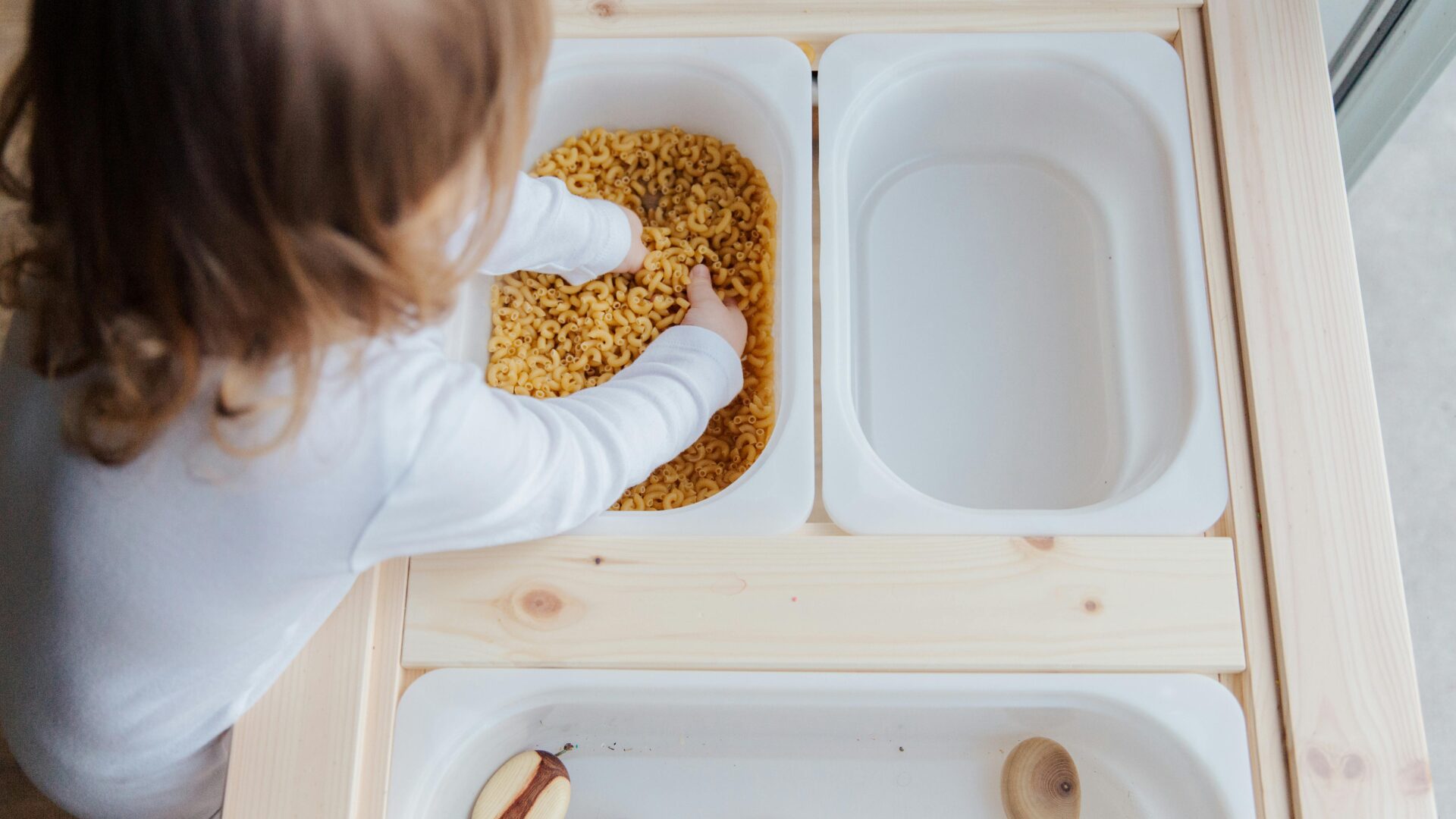Sensory play is a wonderful way to captivate young children and spark their curiosity by engaging their senses. During the festive season, adding Christmas-themed activities makes these sensory experiences even more magical and memorable!
Festive Sensory Play Ideas
Red and Green Sensory Bin
- Fill a bin with red and green rice, then add jingle bells, pine cones, and other festive items.
- Invite children to explore the textures, colours, and sounds.
- Provide scoops, spoons, and tongs to help them practice fine motor skills while they play.
DIY Snow Sensory Play
- Create fluffy “snow” by mixing shaving cream with a sprinkle of glitter.
- Hide small toys like miniature Christmas trees or snowmen for children to discover.
- Encourage them to explore the texture with their hands (or even feet!) for a truly immersive experience.
Christmas Cookie Cutter Playdough
- Make homemade playdough and colour it red and green.
- Use Christmas cookie cutters to create shapes like stars, trees, and reindeer.
- Let children roll, press, and shape the dough, developing their creativity and motor skills.
Why Sensory Play Matters
Sensory play is essential for stimulating a child’s sensory development. By engaging their senses of sight, touch, smell, and hearing, children learn to process and interpret the world around them. Activities like feeling the texture of rice, listening to the sound of jingle bells, or smelling a hint of pine create rich opportunities for exploration and discovery.
It also plays a significant role in building fine motor skills. Simple actions such as scooping rice, rolling playdough, or manipulating small objects help develop hand-eye coordination and dexterity. These skills are foundational for tasks like writing, drawing, and self-care activities.
Cognitive growth is another critical benefit of sensory play. These hands-on experiences encourage children to think creatively and solve problems. For instance, deciding how to use a cookie cutter to make a perfect star or figuring out how to scoop up tiny jingle bells fosters logical thinking and imagination.
Finally, sensory play supports social and emotional development. It offers opportunities for children to share materials, take turns, and collaborate, which helps build social skills. At the same time, sensory activities can provide a calming effect, allowing children to express emotions and self-regulate in a safe and engaging environment.
By incorporating sensory play into their routines, children not only have fun but also build important skills that contribute to their overall growth and well-being.







